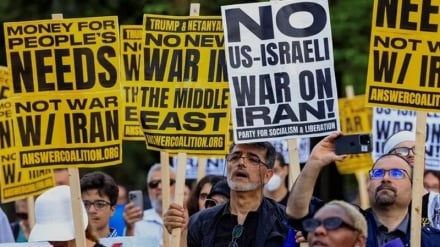Woe to defrauders/ Qur'anic serious warning for society and economy
Pars Today- The holy Qur'an has described defraud as a cause of ruin of the city of Midian and destruction of its people. Defraud has been castigated in 6 chapters out of 114 chapters of the Qur'an.
The issue of struggle against defraud and cheating in weight and scale has been repeatedly underlined in the Qur'an. God has once considered the observation of this order equal to the order of the system of creation and in verses 7 and 8 of chapter Al-Rahman, says, "He raised the sky and set up the balance, declaring, 'Do not infringe the balance!'"
God in verses 1-4 of chapter Al-Mutaffifin says in a stronger and more threatening tone, "Woe to defrauders who use short measures, who, when they measure [a commodity bought] from the people, take the full measure, but diminish when they measure or weigh for them. Do they not know that they will be resurrected on a tremendous day?"
Overcharging is one of the blights of earning halal (religiously permitted) sustenance which many people in the market may be grappling with knowingly or unknowingly. The income of overcharging is haram (religiously forbidden) and should be returned to the owner.
Imam Sadeq (Peace upon him), the sixth Imam of Shia Muslims, says, "To cause a person, who has trusted the seller concerning the price of a commodity (and soundness of its material), to lose is haram."
The Prophet of Islam says, "Anyone who buys the foodstuff needed by people and keeps it for forty days waiting for high prices, has committed a sin that, even if he sells all of them and pays the money in charity, this will not be the atonement of the sin he has committed."
In verses 84-86 of chapter Hud, God points to an economic corruption which stems from the spirit of polytheism and idolatry and was rife among the people of the city of Midian, and says, "Do not diminish the measure and the balance."
According to Hojjat-ol-Islam Mojtaba Kalbasi, head of the Mahdaviat Center, defraud and overcharging have various kinds. For instance, someone produces something and the label on it reads specifications which are not true and he delivers other than what he has said. Sometimes, someone promises to do something, but he comes short of it. This is also an example of short of working and defraud.
He explained, "God has stressed the maintenance of justice and fairness in the Qur'anic verses. One of the manifestations of defraud and overcharging is too much praising of the commodity that we want to sell and doubling the price; or if we want to buy something from someone, we speak so negatively about it so that we can gain more profit and pay less."
He continued, "A hadith from the Prophet reads that trustworthiness attracts sustenance and betrayal will bring about poverty."
Kalbasi stated, "To develop the society in this field is not feasible only through government agents and rules of working. One should rather pay attention to the people's inward development just as the divine messengers were after the people's inward development alongside the development in society."
RM/ME
Key phrases: What is defraud? cause of poverty, economic crises, struggle against overcharging, Islamic view on economy, narrations about economy



